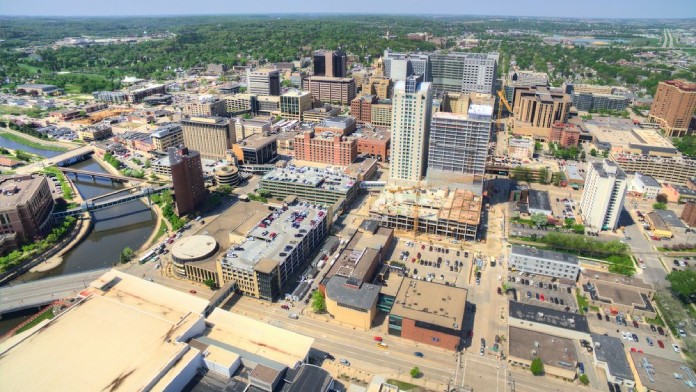Alcohol and Drug Abuse Statistics in Rochester, MN
Minnesota has seen a sharp increase in the number of drug overdoses. Let’s look at some of the alcohol and drug use statistics in Rochester and the surrounding county:3,4,5
How to Pay for Alcohol and Drug Treatment Centers in Rochester
There are many ways to pay for inpatient and outpatient addiction treatment in Rochester. State-funded rehabs provide free or low-cost programs. Federal, state, and county governments put money into Minnesota’s Behavioral Health Fund so that state residents with low income can go to rehab. People who qualify can get payment assistance through Olmsted County. These rehab services include methadone clinics, which assist people with medical withdrawal from opioids.
There are also drug and alcohol rehabs that offer rehab scholarships to people who qualify. You will likely have to contact the rehab directly to see if they offer scholarships and fill out an application form.
Some free drug and alcohol rehab options in Rochester and Olmsted County include:
- Common Ground
- Oxford House
Other Ways to Pay for Licensed Alcohol and Drug Rehab
Medical Assistance, Minnesota’s Medicaid program, will cover the costs of drug or alcohol rehab. To be eligible, you must be a resident of Minnesota, a U.S. national, citizen, permanent resident, or legal alien, and be low-income and in need of health care assistance.6 You must also be one of the following:6
- Pregnant or responsible for a child 18 years old or younger
- Blind
- Have a disability or a family member in the household with a disability
- 65 years old or older
Minnesota also offers MinnesotaCare to people who have an income that makes them ineligible for Medicaid. Most members pay a monthly premium which is based on the family’s income. To be eligible for MinnesotaCare, you must be a state resident and meet all the following:6
- 18 years old or younger or a primary caregiver to children 18 years old or younger
- A U.S. citizen, national, or non-citizen legally admitted into the U.S.
- Uninsured and ineligible for Medicaid
Medicare is another federal insurance program designed to provide medical insurance for those 65 years old or older or younger than 65 and disabled. It also covers some types of drug and alcohol rehab.
If you qualify for Medical Assistance, MinnesotaCare, or Medicare, you will still need to find a drug rehab or alcohol rehab in Rochester that accepts these government-funded insurance plans.
Private insurance will also cover at least some, if not all, of the cost of your treatment. Choosing a Rochester drug and alcohol rehab that accepts your insurance plan will help keep out-of-pocket costs low. Common private insurance options include Blue Cross Blue Shield, UCare, PreferredOne, and UnitedHealthcare.
How Easy Is it to Travel to and Within Rochester?
 Rochester is just a few miles from I-90, a major interstate highway, and is easily accessible whether you’re traveling to the city for addiction treatment or visiting a friend or family member at a Rochester drug or alcohol rehab. By car, Rochester is just 80 minutes from the Minneapolis and St. Paul area and 5.5 hours from Chicago.
Rochester is just a few miles from I-90, a major interstate highway, and is easily accessible whether you’re traveling to the city for addiction treatment or visiting a friend or family member at a Rochester drug or alcohol rehab. By car, Rochester is just 80 minutes from the Minneapolis and St. Paul area and 5.5 hours from Chicago.
Amtrak provides daily train service between Rochester and Chicago, and the Pacific Northwest. Jefferson Bus Lines offers service from Rochester to many cities and connects to Greyhound in Minneapolis. You can also utilize the airport in Rochester or nearby Minneapolis.
Rochester is designed to be pedestrian friendly. It features a system of skyways and underground walkways, so you rarely have to walk outside. This provides a great escape from any weather extremes. Along the skyway system, you’ll find restaurants and shops that run both above and below street level. For those who prefer not to walk, Rochester has taxis, a trolley service, and in-town shuttles.
Visitors to Rochester can choose from around 6,000 hotel rooms. While the Mayo Clinic brings most visitors to the city, you can also enjoy outdoor adventures at one of the city’s more than 100 parks.
Resources
- City of Rochester, Minnesota. (n.d.). About.
- Rochester Police Department. (2022). 2021 Annual Report.
- Minnesota Department of Health. (2022). Number of drug overdose deaths, by county of residence/metro area and year, 2011-2021.
- Minnesota Department of Health. (n.d.). Olmsted County Substance Use and Overdose Profile.
- Olmsted County Public Health Services. (2021). Olmsted County, Minnesota Community Health Improvement Plan.
- U.S. Government. (n.d.). Minnesota Medicaid.



